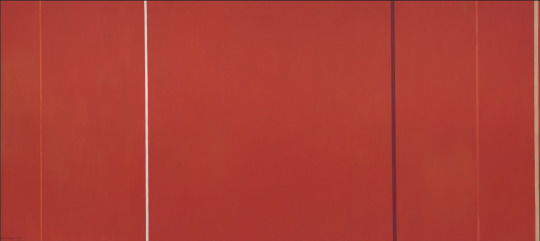#ContemporaryPhilosophy
Explore tagged Tumblr posts
Text
If Love and Duty Took a Day Off: A World Unwired
“If Love and Duty Took a Day Off: A World Unwired” Imagine a morning without a gentle nudge, a world without a waiting hand or a listening heart. What would it be like if love and responsibilities simply ceased to exist? The question seems fantastical, even dystopian—but peeling back the layers reveals a deeply philosophical and emotionally stirring possibility that merits thoughtful…
#LoveAndResponsibility PhilosophyOfLife EmotionalWellbeing ExistentialThoughts MeaningfulLiving BritishBlog ContemporaryPhilosophy#BritishBlog#ContemporaryPhilosophy#EmotionalWellbeing#ExistentialThoughts#LoveAndResponsibility#MeaningfulLiving#PhilosophyOfLife
0 notes
Text
WOII: Week 10 - Poststructuralism
This week’s exploration of poststructuralism has fundamentally shifted my understanding of design's relationship with meaning. Derrida’s concept of différance, the idea that meaning is fluid and perpetually deferred within language (Derrida 23), strongly resonated with our activity’s deliberate juxtapositions. The pairing of "got birds?" with water ripples evolved into a poignant question about ecological fragility, while "emergency intercom" alongside marbled umbrellas transformed weather data into a surreal warning. These exercises highlighted that meaning isn't inherent but actively constructed through contextual interaction.
Foucault’s power/knowledge framework (Foucault 135) has significantly impacted my perspective on design practice. The seemingly simple locker with a push bar now represents how visual hierarchies, such as grids and typography, can subtly enforce control. My previous inclination towards "clean" layouts now feels potentially complicit in prioritizing singular interpretations over the richness of ambiguity, a notion reinforced by Nietzsche’s assertion: “Truths are metaphors we’ve forgotten are metaphors” (Nietzsche 84). This prompts a critical re-evaluation: why not allow textual elements to fragment into abstraction or images to resist singular narratives, embracing a more open and participatory engagement with the viewer's interpretation?
This perspective aligns with Barnett Newman, whose abstract canvases deliberately reject representational certainty. His zip paintings, vertical lines bisecting fields of color, refuse fixed meaning, inviting individual and subjective interpretation. Similar to poststructuralist thought, Newman’s work suggests that meaning isn't a static discovery but an active construction by the observer. This week has challenged my core assumptions about design's communicative function, pushing me towards a more dynamic and less prescriptive approach that acknowledges the inherent instability of meaning.
Total word count: 259 Words
------------------------------------------------------------------------------
Works Cited
Derrida, Jacques. Of Grammatology. Translated by Gayatri Spivak, Johns Hopkins UP, 1997.
Foucault, Michel. Discipline and Punish: The Birth of the Prison. Translated by Alan Sheridan, Vintage, 1995.
Newman, Barnett. The Sublime Is Now. 1948, Tiger’s Eye, vol. 1, no. 6, pp. 51–53.
Nietzsche, Friedrich. “On Truth and Lies in a Nonmoral Sense.” Philosophy and Truth, edited by Daniel Breazeale, Humanities Press, 1979, pp. 79–97.


------------------------------------------------------------------------------


"Vir Heroicus Sublimis" (1950-51)

"Who’s Afraid of Red, Yellow and Blue I" (1966)

"Onement I" (1948)
#SublimeChaos#DesignIsPolitical#ArtIsFreedom#EmbraceAmbiguity#UnlearnRules#VisualPoetry#DesignAsArt#ChaosAndOrder#Poststructuralism#Derrida#Foucault#Nietzsche#CriticalTheory#Deconstruction#Semiotics#VisualTheory#DesignPhilosophy#BarnettNewman#AbstractExpressionism#ModernArt#ArtTheory#PowerKnowledge#Différance#Epistemology#Aesthetics#ContemporaryPhilosophy#VisualCulture#DesignCriticism#ArtAndPhilosophy#Structuralism
0 notes
Text
Contemporary British and American Philosophy - September 13
Contemporary British and American philosophy - September 13 Sellars: The goal of philosophy is to know the way around knowledge, to just know. Says that someone could have a great deal of knowledge but not have relevant know how. For example someone could know the way to drive a car, but not truly know how to drive a car. If you know how to do something, you must have relevant know that. If you have duties you must have knowledge of ethics. This is one of the things that applies the above concept. What is the ontological status of fingersnaps? Do they exist? More that as a child you practice until you can do it, and then you suddenly know how. Manifest image is a type of science. If I were to see smoke on the horizon, I might postulate that there was a fire somewhere over on the same horizon. Ohholyshitthisclass......... Zzzzz.
2 notes
·
View notes